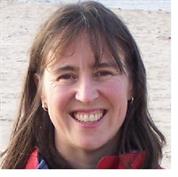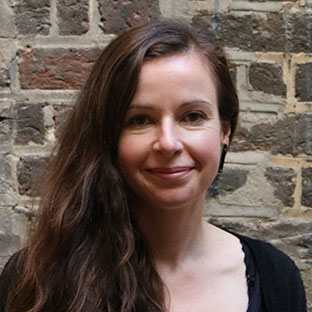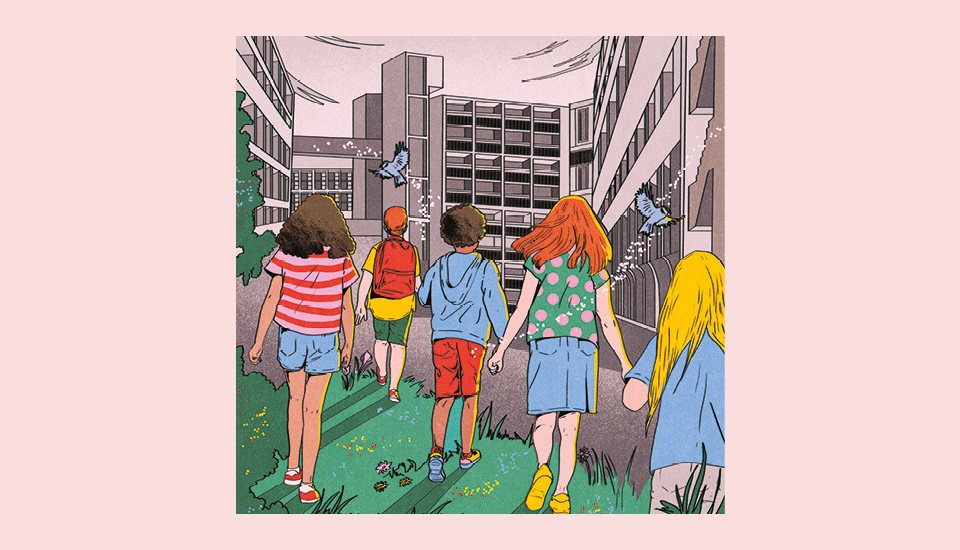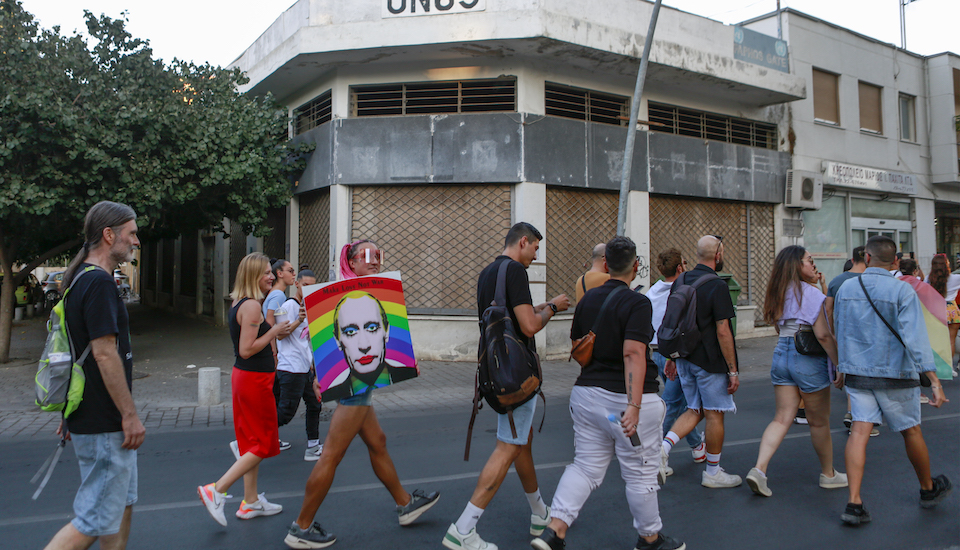The education sector is being forced to constantly change and adapt in these strange times. While it is easy to see the hurdles ahead, there are also more opportunities to design rich curriculums that engage, inspire and empower pupils and teachers.
Two recent events hosted by RSA’s Innovative Education Network focused on answering the question ‘How can we empower young people as changemakers through education?’. These events explored new ways of engaging and igniting young peoples’ passion for learning, and empowering them through a range of approaches, techniques and practices. The events also explored ways of ensuring teachers feel more connected and engaged with the learning process, and aligning education to the key challenges that face us in society.
We were joined by a range of excellent speakers including young changemakers, headteachers, and leaders in changemaking and climate change. We wanted to share some of the valuable insights that came out of these events and connect these to some emerging themes within education.
The first event began with a passionate call by Tim Smit (Founder of the Eden Project) for schools to increase their focus on climate and environmental education. He called for an immediate response to the extensive challenges that face us and the world around us and highlighted the work of the Eden Project in seeking to address these issues. While this was supported by all the speakers at both events, it was particularly wonderful to hear the voices of young people including Robson Augusta (Teach the Future) and Marion Smith and Pooja Kishinani (University of Manchester, Student Climate Handbook). They provided impassioned talks describing the wonderful work they are involved in around the themes of sustainability and climate action and supporting curriculum change in universities and schools.
Experts in the field of education also shared with us some excellent examples of educational practice relating to curriculum design and changemaking:
-
Rachel Tomlinson (Barrowford Primary) described the ways in which she has built the UN Social Development Goals (SDGs) into the whole curriculum and teaching and learning practice within her school. This has not only inspired the pupils within the school, but also empowered them as critical and analytical thinkers in a range of social justice and climate issues.
-
Andy Moor introduced us to The Ignite Chester Zoo project and highlighted the importance of empowering pupils and schools in conservation, biodiversity, and sustainability through the development of knowledge and humanity rich curriculums. The project provides high quality CPD in curriculum development and design, empowers young people as active changemakers, ignites their passion for learning, and reconnects teachers to the purpose of education.
-
Maya Lingam explored the role technology can play, through applications such as her platform Ecospot, in supporting, monitoring and empowering young people in climate change action. She also spoke about the importance of diverse voices and perspectives in the conversations we have about climate change.
-
Alison Edmonds outlined the value of the Epic Steps and RSA Academies project she has developed to bring together pupils, schools, and communities around real-life problems. This not only enhanced their learning experiences through developing creative, collaborative and innovative ideas and solutions, but also taught them valuable learning and changemaker experiences through a range of social justice issues.
-
The Morecombe Bay Eden Project also highlights the importance of place-based curriculum design and the need to unite communities together through an integrated and inclusive approach to learning, biodiversity, climate change and sustainability. This includes enabling young people and communities to thrive, flourish and fully engage with the rich and highly valued ecosystems of people and nature that surrounds them.
The key messages within these talks focused on inspiring, engaging and empowering young pupils through education in order that they have the agency, humanity, knowledge and skills to make effective change to peoples’ lives and the world around us. As we face many challenges in the future connected to areas such as climate change, social justice issues and opportunities to innovate and create better futures, we also need to consider how these issues resonate with some specific themes within education more broadly. These include:
-
Exploring interconnections between knowledge, skills, understanding, humanity and values – In contrast to setting up false binaries (e.g. knowledge vs skills) many of the speakers emphasised the need to find new ways to interweave these different elements together, when developing curriculums, pedagogy, and approaches to learning. This also highlights the need for a richer picture and analysis of how these elements interconnect and more practical examples of how to put this into practice (as illustrated in the projects above).
-
Knowledge rich curriculums – We need to develop a greater understanding of ‘knowledge rich curriculums’. While at times we may learn about ideas, concepts and principles in more abstract and disembodied ways, creating a rich knowledge experience requires knowledge to be mobilised and aligned with real life contexts and issues. A rich curriculum approach interweaves these effectively throughout the curriculum and connects this learning process to the development of knowledge, skills, values and humanity in a wide range of areas. This includes the significant challenges and possibilities that will face us in the future to ensure we can all thrive and flourish in an inclusive, interconnected, caring, diverse and rich world.
-
Knowledge development – What and how we learn should be viewed in a variety of ways. In particular, it needs to be understood and valued in the context of wider issues (e.g. values, cultures, emotions, humanity); as a complex and collaborative approach that requires an understanding of different perspectives and possibilities; in relation to high order skills (e.g. critical thinking, problem solving, analytical thinking); as emerging through different disciplines and approaches (e.g. that go beyond traditional disciplinary subjects and also include areas such as art, music, drama, technology, sociology, psychology, etc.) and finally connected to real life issues, problems, and cases. We also need to be careful not to simplify this process to a reductive view of knowledge and learning, including the linear notion of knowledge first, and context second. In order to provide a rich learning experience, we contend that both knowledge and context need to emerge together by interweaving them throughout the curriculum and providing many different opportunities to apply and mobilise knowledge.
-
Real life and place based curriculums – Again the projects above all highlight the importance of connecting to real life cases, challenges and issues within local communities and the local context in which the school is located. This is not to neglect the ways in which local issues connect to global issues, but to provide rich and engaging opportunities to consider, learn and make a positive difference in the wider world around us.
-
Interdisciplinary and complexity – A rich curriculum also needs to interweave and connect disciplinary knowledge through different projects, problems, cases, perspectives and ideas. This not only helps to provide richer examinations of problems, but also more creative and innovative solutions. In this way, learners are more able to appreciate the rich and complex world around them rather than relying on simplistic and one-dimensional views of problems and solutions. For instance, by listening to and understanding different ways of viewing problems and dilemmas they can develop more effective and innovative solutions and tackle the challenges that face us in the future.
-
Climate education – The need for a greater focus on climate change within education was highlighted by all the speakers. This includes avoiding a sole focus on a scientific examination of climate change and also exploring the importance of different social and emotional aspects and values connected to developing a more sustainable future. Again this amounts to richer forms of education that are able to interweave knowledge, values, and experiences into the curriculum. Finally, here are some links to resources and courses in climate education: Aim Hi; Thoughtbox; Nature Premium; British Council; Climate Action Collaboration. You can also find more resources in our collaborative online space connected to each event.
In addition to thanking everyone who contributed to these excellent events and for the positive and hopeful contributions they gave, we would also love to continue these conversations with the wider fellowship and others interested in these issues. Please let us know your views on taking education forward to ensure young people can flourish and thrive in the world around us.
Our upcoming Innovative Education Network events will seek to explore these issues further, as well as many new and emergent themes. We also welcome new members to join the network and you will receive an invite to our collaborative online platform where everyone is welcome and encouraged to share questions, events and resources.
Related articles
-
Young at heart
Journal
Jonathan Prosser
Becoming a nation with children at its centre in 10 courageous steps.
-
Open RSA knowledge standards
Blog
Alessandra Tombazzi Tom Kenyon
After investigating ‘knowledge commons’, we're introducing our open RSA standards and what they mean for our practice, products and processes.
-
Worlds apart
Comment
Frank Gaffikin
We are at an inflexion point as a species with an increasing need for collaborative responses to the global crises we face.





Join the discussion
Comments
Please login to post a comment or reply
Don't have an account? Click here to register.
Looking at this from a startup perspective many of these projects sound like great MVPs that have delivered results. The problem is less the ability of fellows to create great ideas and build prototypes, as to figure out how to fund and scale them. There are 32,000 schools in the UK. 1,000 schools is about 3% of the market. The question is then of practicality - how do we demonstrate that these projects are of sufficient value to be funded at massive scale. Where do we get the funding from? What do we replace or displace in order to get childrens attention and teachers time? How do we cross the chasm into the mass market? There is possibly a piece of work that looks at how educational improvements spread across school and teacher networks and looks at ways of doing this faster and better.
I find this a very encouraging blog report - thank you.While I am not an education professional, may I pick up on the point discussed about bringing the UN Sustainable Development Goals [SDGs] into teaching and learning practices. Understandably, people not yet engaged with the SDGs in teaching might assume that what is being suggested is simply to add the 17 SDGs as a subject to be learnt. From my knowledge of the SDGs, though, I think that to do that would miss the transformational potential of using the goals and the targets within them as a way of inspiring pupil's real interest in a significant number of standard curriculum subjects. This is particularly so since many of the goals require the application of a wide range of skills and are very clearly aimed at addressing vitally important issues, relevant to all pupils, found within all nations (very definitely including the UK), thus providing both a local and global context.Furthermore, due to the interconnected nature of the goals, I would suggest that the successful delivery of the SDGs requires deep systems-thinking, which further encourages very high standards of technical, social and thinking skills. Thus using the SDGs as a framework to encourage learning could also help materially raise such skills and, even better, do so in a holistic way.